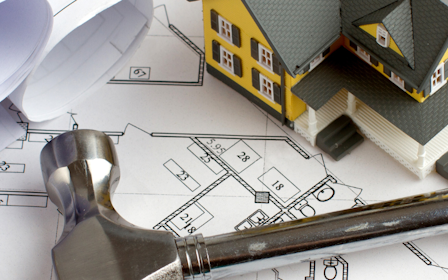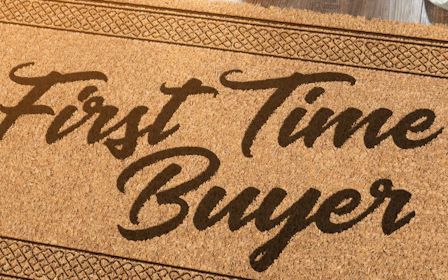If you’re looking to become a first-time homebuyer, saving for a house while renting may seem daunting. How are you supposed to put money away for a down payment while still paying rent for your apartment?
The truth is saving for a home while renting is challenging. However, there are common tactics used successfully by other aspiring homeowners—from appraising finances to creating a budget and adopting a side hustle—that could help make your homeownership dreams a reality. Let’s dive in.
10 Steps That Could Help You Save Money for a House While Renting
1. Appraising Finances
It’s essential to understand your financial situation clearly before creating a budget or starting to save for a house. You could start by taking stock of your income, expenses, debts, and savings to determine how much money you have coming in and out and how much you can realistically set aside each month toward a down payment.
If you’re a do-it-yourself type, a spreadsheet can be helpful to track spending and income over the last few months, or you can look into various programs that will help track spending for you. Otherwise, you might consider consulting a financial advisor.
2. Forming a Budget
Once you’ve evaluated your financial situation, you can use your monthly expenses and income to create a realistic budget that outlines what you need to spend on bills and what you can spend on discretionary purchases (dining out, entertainment, etc.) while still allocating designated funds toward your savings.
3. Opening a Savings Account
Already have some savings put together? You might want to consider a separate savings account to keep this money separate from your other funds. Keeping your down payment fund away from your everyday checking and savings accounts will make it harder for you to dip into your down payment when unexpected expenses arise.
You might also consider a high-yield savings account that offers a competitive interest rate to maximize savings!
4. Finding a Roommate
If you live alone, one of the most effective ways to start saving for a home while renting is to find a roommate. Splitting rent and utilities every month can significantly reduce monthly spending and drastically increase the amount you can save toward your down payment.
Just be sure to carefully screen any potential roommates if you search for one outside your family and immediate friends.
5. Moving Apartments
If you can’t find a roommate and your rent consumes a significant portion of your monthly income, you might consider moving to a more affordable apartment. You could check if it’s possible to downsize to a smaller apartment or look for apartment complexes in an area with lower rent rates.
6. Managing Debt
Before you can comfortably buy a house, you might find reducing or eliminating credit card debt or personal loans helpful. If so, one option would be to pay more than the minimum monthly payment whenever possible.
7. Hosting a Garage Sale
A tried-and-true tactic that many have turned to for extra savings, hosting a garage sale isn’t only helpful as a potential cash generator, but also as a way to minimize and offload any items you no longer need or use, such as clothing, furniture, electronics, and collectibles.
Just remember to check with your city’s regulations before hosting your sale to ensure yard sales are legal in your neighborhood and community.
8. Cutting Spending
It never hurts to take a fresh look at monthly spending to identify extraneous expenses. Are there subscription services you no longer use or simply don’t need? Can you cut down utility usage? Can you plan meals and shop for groceries more strategically to minimize food costs?
By adopting frugal habits and taking control of your spending, you might find opportunities to redirect funds toward your savings goals.
9. Adopting a Side Hustle
When cutting spending isn’t possible (or enough), many boost their income with side hustles. Whether freelancing, food delivery, driving for a ride-share service, or dog walking, side hustles can be a useful way to earn extra money outside the 9-to-5.
10. Saving Refunds and Bonuses
Leveraging bonuses and tax refunds can be a great way to make significant strides toward homeownership. By treating this income as an extra contribution toward your down payment, you might be able to purchase a home faster.
First-time Homebuyers Assistance Programs
If you qualify as a first-time homebuyer, you may be eligible for a first-time homebuyer assistance program. These programs typically offer first-time homebuyers down payment or mortgage payment assistance, making homeownership more accessible and affordable for individuals who may not otherwise be able to afford a home on their own.
Some homebuyer programs are administered by state and federal government agencies, while others are run by non-profit organizations and private lenders. Eligibility criteria will vary from one assistance program to another, but they often consider factors such as income, credit score, and property location.
To find a first-time homebuyers' assistance program in your area, consider checking with your state and local government and speaking with a real estate agent or certified lender.
Is Buying a Pre-Built Home or New Construction Better?
When comparing pre-built homes and new construction, first-time homebuyers should consider their priorities, personal preferences, and budget. Here are the main differences between pre-built and new-construction homes.
- Pre-built homes: Also known as existing homes, pre-built homes are typically located in an established community and have mature landscaping and unique architectural features that may appeal to some buyers. However, pre-built homes can also require extensive renovations, repairs, and updates. Pre-built homes are also generally less customizable since they are already built and established.
- New construction: New construction homes offer modern amenities, energy efficiency, and–depending on a home’s stage of construction–the opportunity for buyers to customize features throughout the building process. Buyers may be able to select floor plans, finishes, and a suite of upgrades to suit their preferences.
Ultimately, you should consider your preferences, consult with your real estate agent, and outline the pros and cons of each type of home option to make an informed decision.
Saving While Renting: Your Path to Homeownership
Saving for your future home while renting can be challenging, but the rewards of homeownership are often well worth the journey.
Already saved up for your new home? Check new homes available in your area today!
Saving While Renting FAQ
How much money do I need for a down payment?
The amount of money you need to save for a down payment can depend upon a variety of factors, including your home’s overall cost, your interest rate, and requirements set by your lender.
What are some tips for saving money for a down payment?
To save money for a down payment, some methods that aspiring homeowners might find helpful are to appraise finances, create a budget, find a roommate, start a side hustle, cut spending, and pay off debt.
Is it possible to save money while paying for rent?
Potentially. It depends on each individual’s financial circumstances, but many can successfully save by carefully tracking monthly income and expenses and budgeting accordingly.


